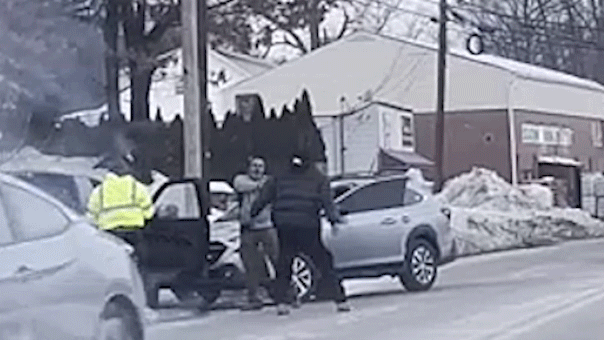Leo Terrell: 'Not a single shred of evidence' shooting of Daunte Wright was racially motivated
Fox News contributor Leo Terrell reacts to protests in Minnesota after police-involved shooting.
The former local prosecutor in Minnesota who brought manslaughter charges against the police officer who fatally shot Daunte Wright during a traffic stop in April explained in a new interview why he resigned, citing "intimidation" and the erosion of the constitutional right to due process.
Imran Ali, who worked for 10 years at the Washington County Attorney's Office, most recently serving as the assistance criminal division chief, resigned in May just days after Minnesota Attorney General Keith Ellison's Office took over prosecution for Brooklyn Center police officer Kim Potter.
"Our criminal justice system is almost at siege," Ali said in a new on-camera interview, according to Fox 9 Minneapolis. "It's eroding the very basis of equal protection for all, due process."
Just four days after Wright was fatally shot on April 11 during a traffic stop in Brooklyn Center, located in Hennepin County outside of Minneapolis, Washington County Attorney Pete Orput announced his office was charging Potter with second-degree manslaughter in connection to Wright's death.
Ali was the lead prosecutor on the case, until Ellison took over a month later amid calls from activists who wanted Potter to also be charged with murder in 20-year-old Wright's death. Protesters repeatedly demonstrated outside Orput's home during that month, and Ali received threats online.
"In that month, I can't tell you how many emails and voicemails and interactions I've had on social media with people on both sides," Ali told Fox 9. "There were people who were either, ‘I can't believe you would ever charge this case, how dare you.’ ‘You've been a lie your whole life’ and then other people telling me to move back to my country and why I was immigrated here."
Ali, who spent a decade at the office prosecuting cases ranging from murder, racketeering and human trafficking, said activists spreading misinformation, civil attorneys trying to influence Potter’s case and a lack of support from elected officials ultimately drove his decision to resign.
"It wasn't just this case," he said. "It was the previous years. The cases I've seen. Everything that's been going on. Do I think there needs to be reform? Absolutely. Do I think we need to do things better? Of course. But this intimidation, I had a front row seat."
Ali started a new job this week at Eckberg Lammers, a law firm based in Stillwater, where he will work as director of law enforcement education in training police officers, Twin Cities reported.
"I hope our state heals," Ali said at the end of his on-camera interview. "I know it’s in a deep divide right now and I'm confident we are going to get through this."
DAUNTE WRIGHT SHOOTING: IS PROGRESSIVE PUSH PUTTING DUE PROCESS IN JEOPARDY?
He said police officers need to be trained by the right people and "if that can save somebody, to us and our firm, that’s a win."
Ali, who also sat down with KARE, described how he and Orput held meetings with civil rights attorneys, including Ben Crump who is representing Wright’s family, and thought they were on the same page.
"And then the very next day saying the exact opposite," Ali said, describing statements made by those same attorneys after their private meetings. "That’s disingenuous to me."
Before the charging decision was announced for Potter, Brooklyn Center Police Chief Tim Gannon said he was going against the Minnesota Bureau of Criminal Apprehension’s advice in deciding to release body-camera footage of the shooting. In playing out the video at a press conference, he remarked that it appeared Potter had intended to grab her Taser, but grabbed her handgun by mistake.
Potter can be heard yelling "Taser" repeatedly in the video before a single shot was fired.
Both Gannon and Potter resigned after the press conference.
Brooklyn Center City Manager Curt Boganey was fired by City Council after suggesting Potter be afforded due process, and Mayor Mike Elliott’s office assumed command of the police department.
CLICK HERE TO GET THE FOX NEWS APP
Wright's death sparked several nights of demonstrations in the area amid already heightened security measures put in place during the trial for former Minneapolis police officer Derek Chauvin, who was later convicted of second-degree unintentional murder, third-degree murder and second-degree manslaughter in the death of George Floyd on May 25, 2020.
In Ali’s short May 24 resignation letter, he cited "vitriol" and "partisan politics" that had made his "job difficult to pursue justice."










































